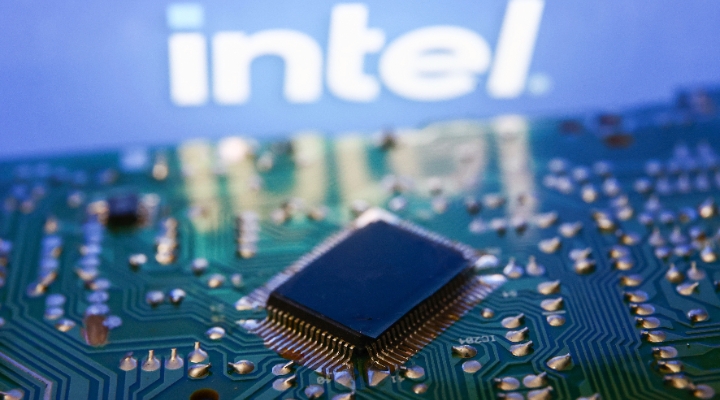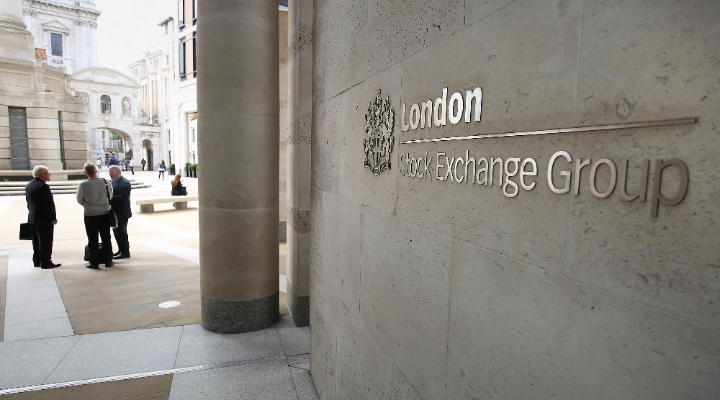
Making accurate forecasts is easy when the trendline has been established. (Making inaccurate forecasts is always easy.)
By the mid-90s, it was clear indexing would boom. And even before I bid mutual funds adieu in a 2021 article, exchange-traded funds (ETFs) had already secured their future. ETFs do not yet control more assets than traditional mutual funds, but they certainly will.
On other occasions, the task is perilous. Early outlooks for the internet’s prospects consisted, in essence, of monkeys tossing darts.
For example, the consensus view entering the new millennium was that the best prospects for recording internet-related profits lay with business-to-business applications. Wrong!
Today, four internet-related firms are among the nation’s 10 largest companies: Microsoft, Amazon.com, Alphabet, and Meta Platforms. The first derives half its revenue from businesses, and the latter three hardly any at all.
Enter AI
Predicting how artificial intelligence will affect the investment industry falls between those two extremes. The internet was so difficult to foresee because it broke radical new ground.
Cellphone conversations resembled those from landlines, but the internet experience was unlike anything that came before. Predictions were made from a foundation of sand.
In contrast, AI has at least something of a predecessor, with computers.
Before AI was developed, microprocessors were the great investment innovation, providing 1) portfolio managers with more information; 2) financial advisors with software; and 3) researchers with improved analytics. The new technology permitted the previously impossible. (Morningstar owes its existence to the availability of personal computers and desktop publishing!)
Using the computer revolution as a backdrop, let’s consider how artificial intelligence might affect each of those three investment-industry segments.
Portfolio Managers
Artificial intelligence is unlikely to change professional money management.
Here, the computer analogy fully holds. When super computers arrived in the 1980s, several "quantitative" investment firms boomed. They profited by mining knowledge from huge databases that had not yet been exploited. Their victory was brief. Within a few years, their funds had reverted to the mean.
You know why. Any reasonably-sized money management business could buy its own computers and investment databases, thereby emulating the quants. And that is exactly what happened. The competitive advantage quickly became mimicking the Joneses. Technologically assisted discoveries no longer mattered because the marketplace had fully incorporated them into equity prices.
The same process will occur with artificial intelligence. Any portfolio management boons from employing AI will soon be erased by imitation. The status quo will therefore persist. Most actively managed funds will trail their benchmarks because of their costs, and identifying the happy exceptions will remain a difficult task.
Prediction: Given the dominance of indexing, active portfolio managers have little to lose. The good news for them is that artificial intelligence will not hurt them. Unfortunately, neither will it help them.
Financial Advisers
Here, the computer analogy partially fails. It works in that both computers and artificial intelligence can process data and arrive at conclusions far more rapidly than humans.
However, it is incomplete because, unlike AI, computers do solely what they are told. Assigning responsibility for their output is straightforward. A computer is no more to blame for providing flawed advice than is a hammer for striking a nail. The fault lies with those who gave the instructions.
One cannot similarly trace artificial intelligence’s steps. That presents a major obstacle when adapting AI for financial advice. On the one hand, AI is well positioned to create customised recommendations, given its flexibility. On the other hand, AI operates outside of human control. Perhaps AI presentations will become so adept at explaining their "reasoning" (to use the term loosely) that customers will grow accustomed to accepting its counsel, without hesitation.
Perhaps. However, at least for the foreseeable future, I suspect that AI will supplement current financial-advisory practices rather than supplant them. Conventional software will suffice for most financial-advisory clients. For those with special conditions, AI will serve as a research assistant, offering potential but discretionary suggestions.
Prediction: unlike active portfolio managers, financial advisers were unharmed by the index-fund revolution. Like active portfolio managers, they face little threat from artificial intelligence – and possibly great benefit, if they harness its powers.
Investment Researchers
The prognosis is most challenging within my own field of investment research. Financial advisers earn their keep from their recommendations.
We researchers, on the other hand, are paid to attract attention. That makes artificial intelligence a true rival. Those who care about investing have only so many hours to devote to the subject. They can spend them on work published by either people or AI.
My hope, naturally, is that artificial intelligence never becomes sufficiently convincing. It provides valuable basic information and fact-checking, as with Google searches, but its insights are judged to be shallow. The material published by artificial intelligence has already surfaced elsewhere, by an author who truly understands the subject, rather than simulating that knowledge.
Whether my hope will be realised remains to be seen. Outdoing computer programs is simple. Even the cleverest programmers struggle to devise output that does not sound witlessly mechanical. Artificial intelligence is quite another matter. AI articles are skillfully written. The content is less sophisticated, but it will surely improve with time.
Prediction: there will always be a place for original research, which AI cannot produce.
However, most published investment research is not truly new but is instead commentary that popularises existing ideas. Very soon, such work will face stern competition.
The views expressed here are the author’s




























